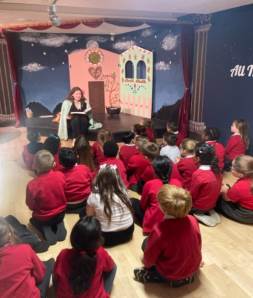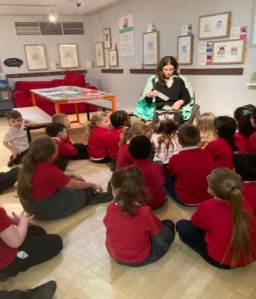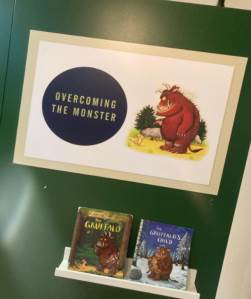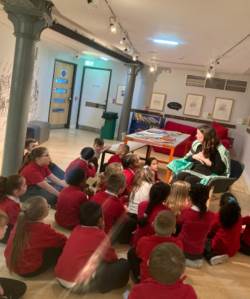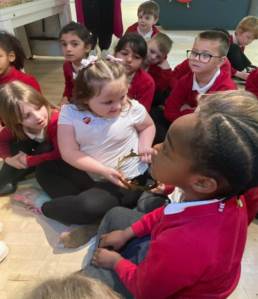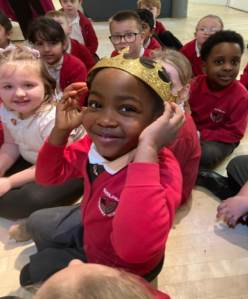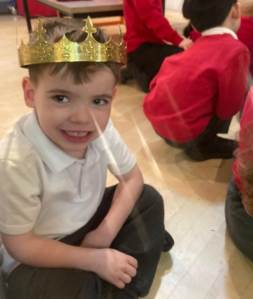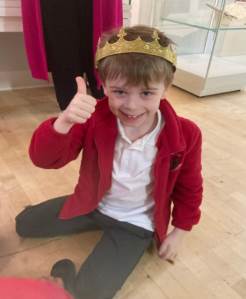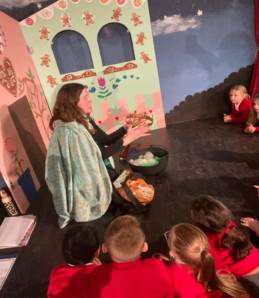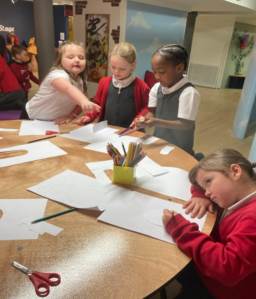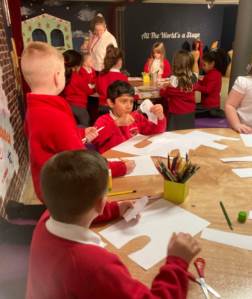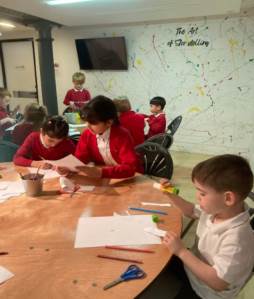English Writing
Subject Leader: Miss Parker
Our Vision
 We provide our children with the basic skills required to communicate effectively when writing. We encourage children to aspire to a variety of careers and teach them that effective written communication is essential for them to succeed. Children learn to have respect for the written word through our love of reading and exposure to a wide range of literature which, in turn, inspires their own written compositions. Children are encouraged to challenge themselves to produce different types of written communication to the best of their ability and continually make improvements to the quality of their writing.
We provide our children with the basic skills required to communicate effectively when writing. We encourage children to aspire to a variety of careers and teach them that effective written communication is essential for them to succeed. Children learn to have respect for the written word through our love of reading and exposure to a wide range of literature which, in turn, inspires their own written compositions. Children are encouraged to challenge themselves to produce different types of written communication to the best of their ability and continually make improvements to the quality of their writing.
As they progress through school, the children of Brandling Primary School are immersed in a carefully planned range of genres and, with each one, build understanding of:
•the purpose for the writing,
•the intended impact of grammar and writing techniques,
•the effect of vocabulary choice on the readers’ thoughts and feelings and
•how to write effectively.
We set high expectations for our learners and challenge them to improve their writing as they move through a unit of work. We do this by providing clear feedback that supports the children to write accurately (correcting errors) and to edit their content for quality. We want our learners to be thoughtful writers who have high expectations for themselves and take pride in their writing.
Our approach to writing provides children with the time to:
- Discover new and exciting texts they have not been introduced to before
- Predict the outcomes
- Become familiar with them
- Immerse themselves in the characters and storyline
- Study the language and structure in the text to build on their own vocabulary Teach grammar explicitly and in context
- Use writing to convey meaning through a range of genres
- Understand audience and purpose
- Edit and review writing in order to improve upon it
- Create several pieces of writing that demonstrate a depth of learning and often empathy
- Publish completed writing and present through a range of mediums
- Inspire reading
Impact of the English writing curriculum
Pupils at Brandling Primary School leave Year 6 with confidence, fluency and understanding of language and literacy. They have a range of independent strategies and transferrable skills and are able to take responsibility for their own learning, including monitoring and correcting their own errors.
The main source of impact can be seen in the quality and breadth of work seen in pupils’ books and the learning environment. We strive to raise the expectation of learners and the quality of work they produce from a curriculum which is designed to provide a depth and wealth of knowledge.
The impact of our curriculum can also be measured against the outcomes of all schools nationally at the end of each key stage. But, most importantly, by how effectively it helps our pupils develop into well-rounded individuals who embody our values and carry with them the knowledge, skills and attitudes which will make them lifelong learners.
Key documents
Schemes of work
Handwriting
Handwriting sessions follow our progression document and these lessons encourage children to use the correct letter formation, focus on key skills (such as using finger spaces, writing on the line and ensuring that they have clear ascenders and descenders). They then apply these skills across the curriculum.
Letter-join is a whole school handwriting scheme we follow from offering a combination of traditional and digital resources. These include classroom presentations, handwriting activities, online games and hundreds of worksheets using either a printed font, or a cursive font with or without a lead-in line.
Pupils can log on to Letter-join by clicking this link.
Vocabulary and Spoken Language
Subject specific vocabulary is taught contextually and displayed on writing walls, with the expectation that children apply these words independently and accurately. From Year 2, pupils are taught how to use dictionaries and thesauruses to improve their writing.
We actively encourage our pupils to have a wide and growing vocabular, across the curriculum, and ensure it is an integral aspect of the teaching of every subject. We provide many opportunities to develop spoken language, for our pupils to speak clearly and confidently and to articulate their views and opinions. Opportunities are maximised to enable pupils to match their style and response to the intended audience and purpose, including assembly performances, discussions and debates, drama, pupil voice and student leadership.
Spelling
Our carefully sequenced spelling sessions encourage children to use a rang of multi-sensory strategies and to apply these skills. This allows our pupils to discuss and practice these skills in depth, which they can then apply during writing lessons and across the curriculum.
Year 2 Seven Stories




